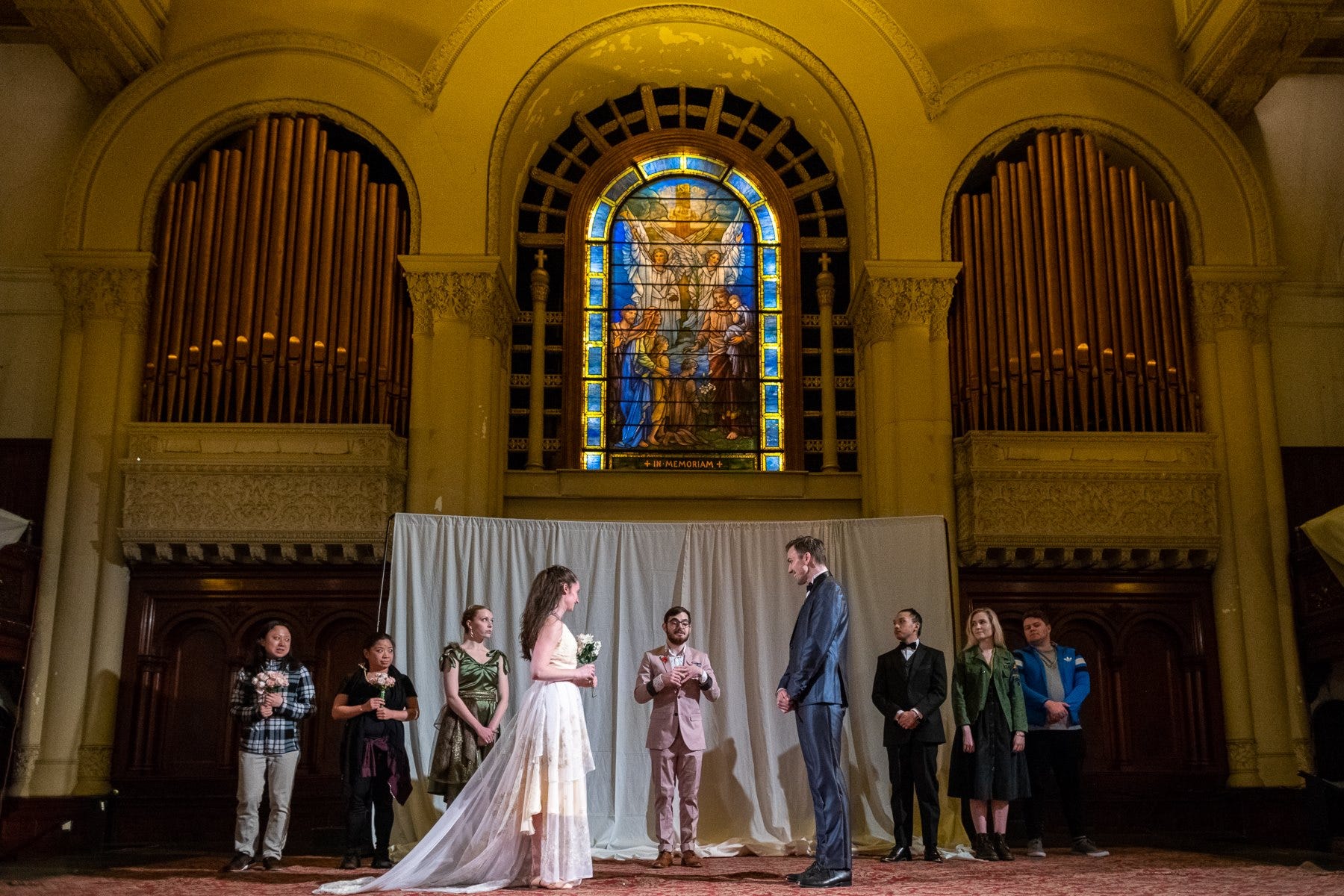
Linked Dance Theatre’s retelling of Orpheus and Eurydice
It was supposed to be the event of the season. But as many wedding planners can attest, things don’t exactly go as expected.
This particular union happens to be between Orpheus and Eurydice in Beloved/Departed from Linked Dance Theatre — the company’s biggest, most ambitious show yet. In the universe of this show, ten energetic performers and a string quartet bring to life a bevy of Greek gods and goddesses, as an intimate audience of a few dozen people wander the West-Park Presbyterian Church, going to the Underworld and back over the course of the night. It’s fascinating to see the NYC-based company apply their unique combination of dance, dialogue, and an original score to such a cavernous indoor space (one which doubles as a real working church on Sundays), having graduated from steamboats, sidewalks, and public parks.
At check-in, wedding guests have the option of stating whether they are there for the bride or the groom, much like a real-life wedding, except this decision drives which of the two tracks they’ll be viewing that night. Both tracks are equally worthy of consideration, though I’d give the slight edge to the groom. Those who spring for a premium ticket may also find themselves conscripted to become part of the wedding party as groomsmen or bridesmaids (with any gender eligible for either role), standing side-by-side as the happy couple say their vows. A thick gold or green cord around one’s neck serves not only as a clear visual indication of attendee versus performer, and also to which side one is aligned with. This cord is also cleverly incorporated into the storyline as a symbol of the audience’s mortality later on — the invisible noose one wears around one’s neck.
The show begins with the divine wedding as officiated by the humorous, good-natured Hymen, who has to deal with Orpheus stepping on his lines during the ceremony. (Matt Engle, in an inspired bit of casting, also plays the haunted, gloomy Charon later on). The audience progresses as a single entity from the ceremony into the reception hall where the party begins and we get a little bit of a sandbox to play in, briefly. Students of immersive theatre will delight in observing the gods interact: hopeful glances, a steely eyed stare, a quiet scoff. A careful eye will note just how much is being communicated about each god-to-god relationship during these quiet moments.
As crowd splinters into multiple smaller threads, individuals will find themselves in intimate small scenes and one-on-one interactions. Musicians seemingly appear out of nowhere to soundtrack the scenes, whether an bone-chilling warbling violin or gently crooning guitarist. The parties cross paths from time to time, but we all come together as one group later on, in a feat of impressive planning given the scope of the work and number of tracks involved.
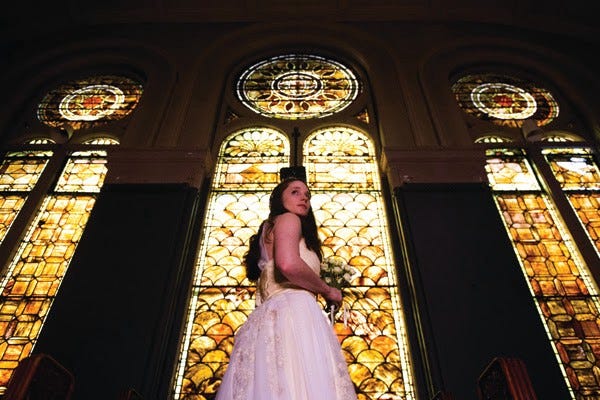
Linked Dance Theatre Co-Artistic Director Kendra Slack plays the naive wood nymph Eurydice. Her guardian and protector Artemis (a stern, regal Kellyn Thornburg) is none too pleased that she’s getting married at all; this despite the groom being her nephew, Orpheus (a very eager Joshua James), the son of Apollo (a smug-looking Calvin Tsang). In this version of the tale, Orpheus is the Greek god equivalent of Josh Groban, who runs into Eurydice backstage at a show in which Artemis (his aunt/her guardian) is attending. Eurydice has no idea who he is and finds cities claustrophobic. She’d much prefer the woods. He loves music, but she loves nature. He’s immortal; she is not. Yet the mismatched pair fall in love under the watchful eye of Aphrodite (a vivacious Rita McCann, who is experiencing her own heartbreak with the flighty Hermes, played by Maya Gonzalez).
Get Kathryn Yu’s stories in your inbox
Join Medium for free to get updates from this writer.
SubscribeSubscribe
It soon becomes all too clear that Orpheus is in love with the idea of being in love and is much too self-centered to prevent Eurydice’s tragic end, as he lives a world where the powers of his father Apollo can quickly and easily right any wrongs. Orpheus has never faced a setback in his life. Eurydice has never been in a serious relationship. Artemis is overly protective. It’s not clear if Apollo believes Eurydice is good enough for his son because he gifts Orpheus his own Muse as a wedding gift (the ruby-throated Oliver Burke “Tillett”). This combination is a recipe for disaster which many humans would instantly recognize, but divine beings aren’t exactly inclined to take advice from us mortals.
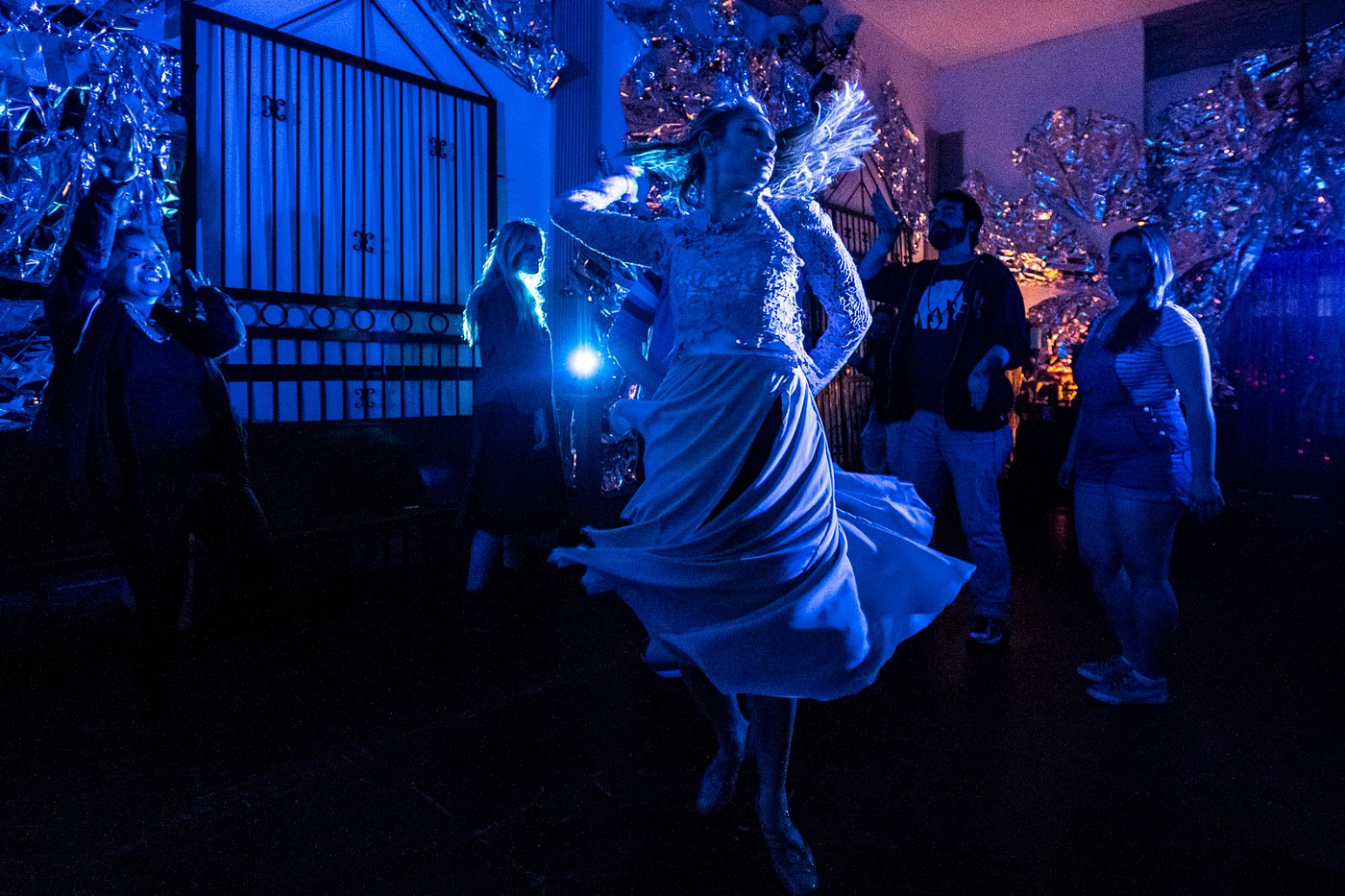
And as Eurydice finds herself dead and descending into the Underworld, lucky attendees will witness her scenes with the conniving, charming Hades (Linked Dance Theatre Co-Artistic Director Jordan Chlapecka) and cold, elegant Persephone (Chloe Markewich). The dance scenes between Eurydice, Hades, and Persephone, both in Purgatory and in the Underworld are some of the best material that the company has put forward, matched only by the show’s moving finale.
So will our star-crossed lovers come to terms with the consequences of their actions? The grief-stricken Orpheus makes his way into the Underworld and bargains with Hades for Eurydice’s life; as we hear his plea through song, we can also see Eurydice’s shadow moving in unison on the other side of the curtain, in a visually stunning set up. (Watching Orpheus, I was struck by the dual nature of our magnificent surroundings: a church, as the site of both weddings and funerals. A place to celebrate both the beloved and the departed.)
Orpheus leaves Hades with Eurydice’s ghost at his back, with the stipulation that he not look back until he’s crossed the threshold, but we know how this turns out. He cannot help but turn around. However, the production takes the classic ending to this tale and broadens it into a resolution of both characters’ tales of self-discovery: of themselves, of their relationship, of their mistakes.
Beloved/Departed is what happens when love is not enough; it is sprawling, complex, and messy, just like the lives of the gods who inhabit it. What I found there was less a celebration of the actions of these divine beings, but rather an exploration of what it means to be alive, what it means to love, and what it means to see someone for who they are. In short: what it means to be human. It’s easy to wonder if there’s anything left to glean from these weary old tales: if the behavior of the these selfish, short-sighted Greek gods and goddesses has any bearing on the modern day foibles of men and women.
Beloved/Departed emphatically says: yes, yes it does.
Beloved/Departed continues through May 18 at the Center for Park West. Tickets are $45–75.
No Proscenium is a labor of love made possible by our generous Patreon backers: join them today!
In addition to the No Proscenium web site, our podcast, and our newsletters, you can find NoPro on Twitter, Facebook, YouTube, Instagram, in our Facebook community Everything Immersive, and on our Slack forum.



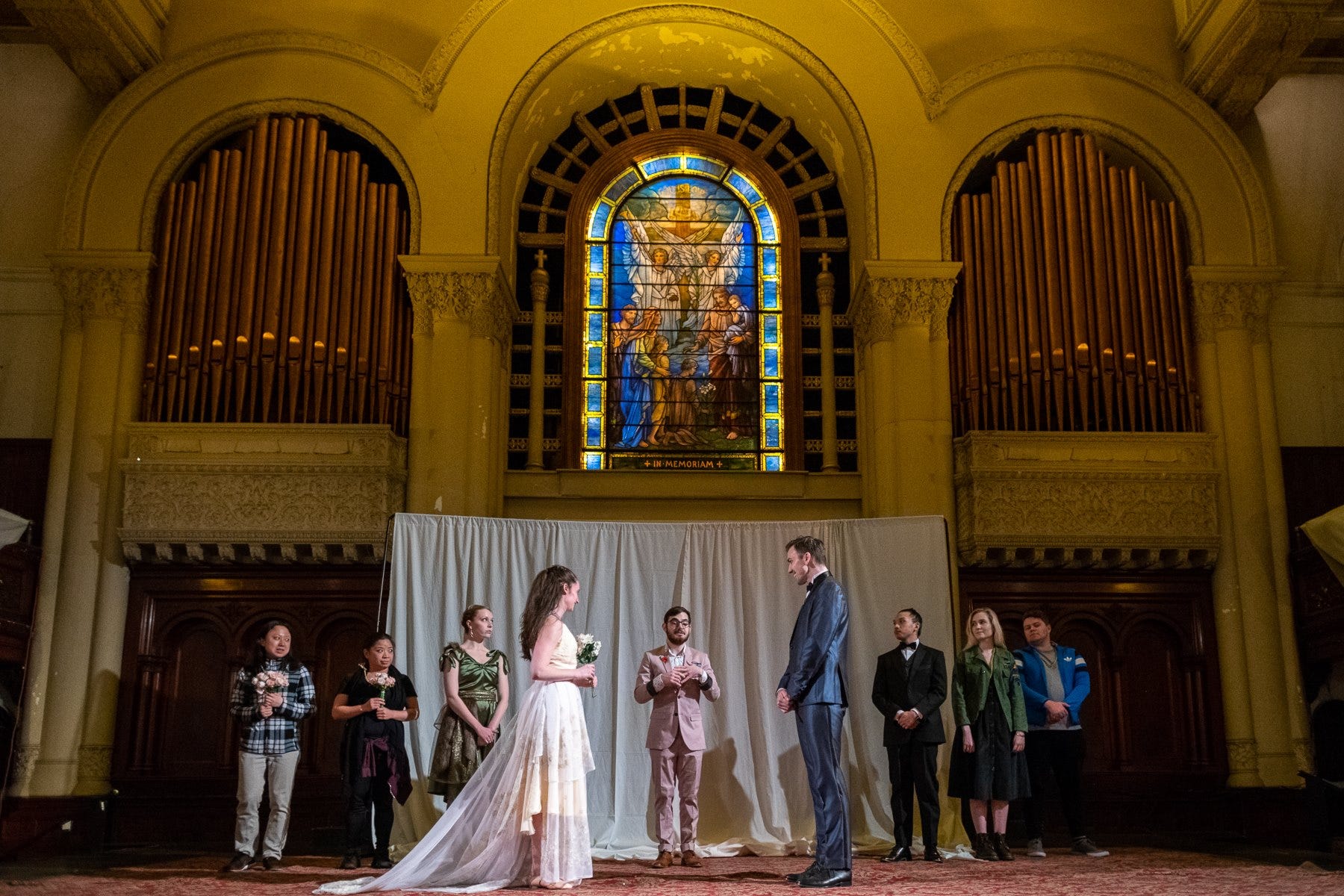
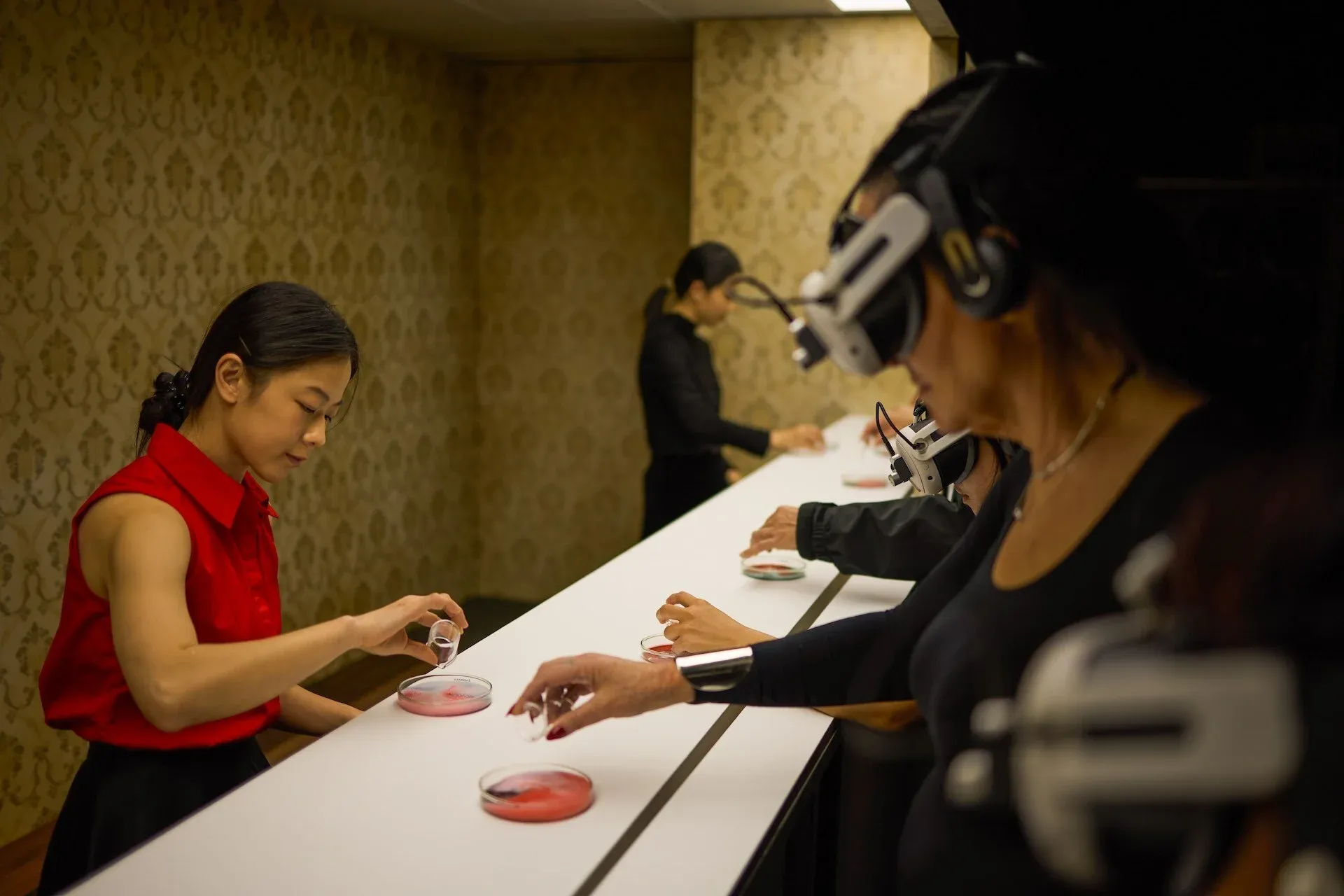








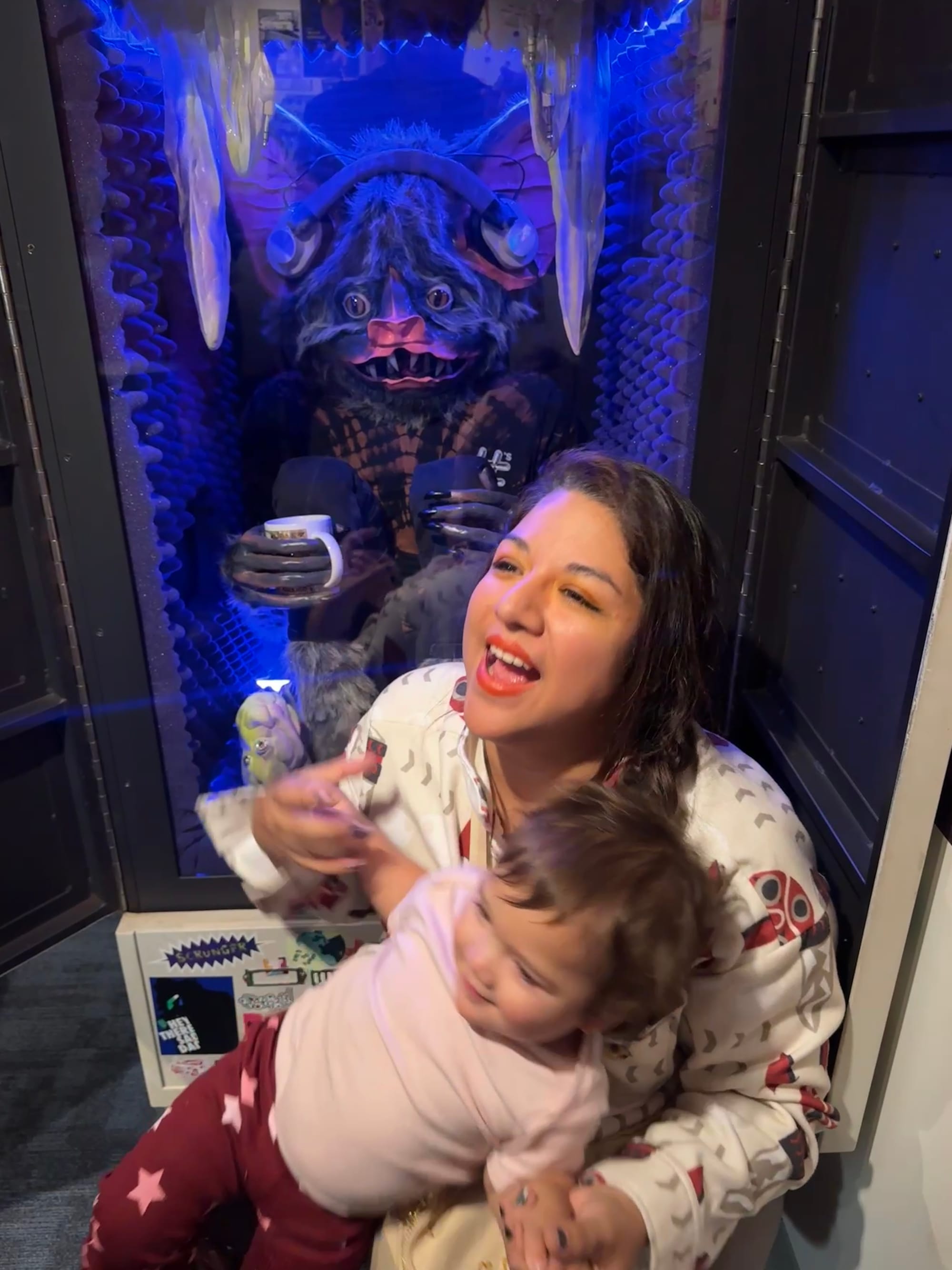




Discussion